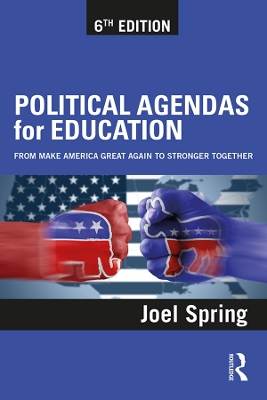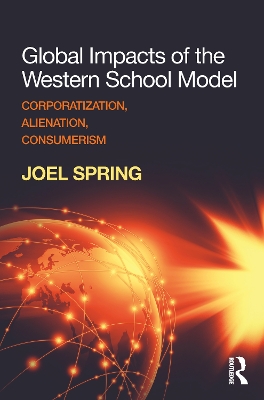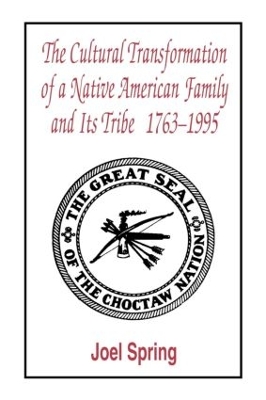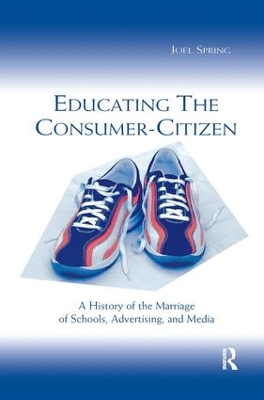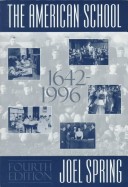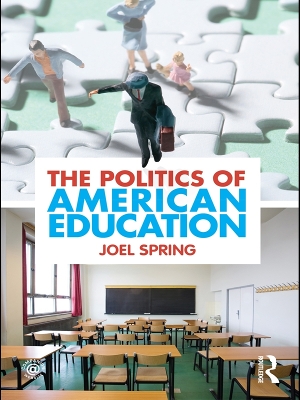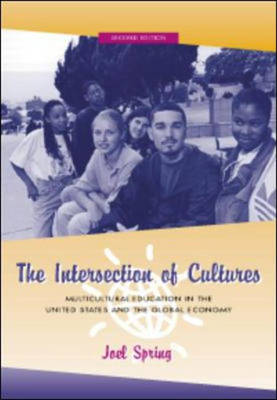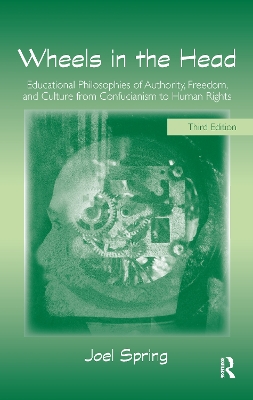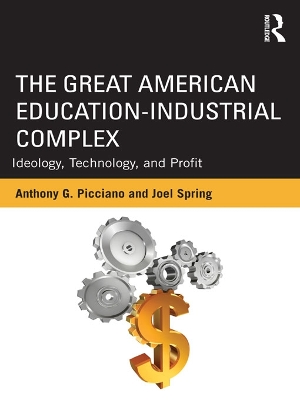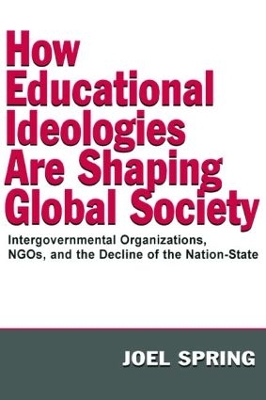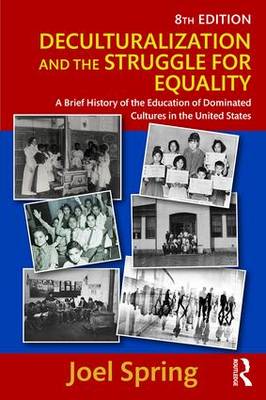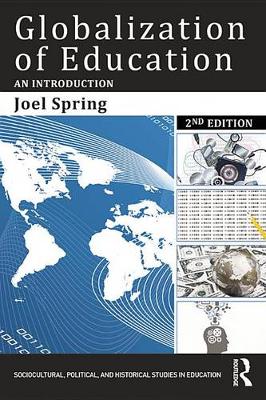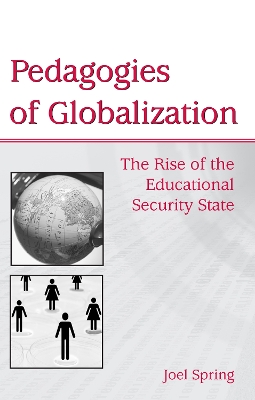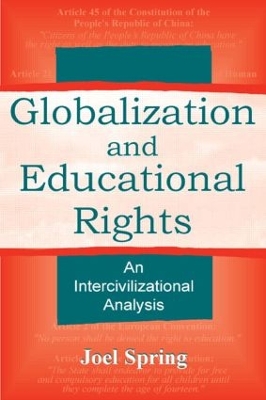Sociocultural, Political, and Historical Studies in Education
20 total works
Following the epic, contentious 2016 presidential election, Joel Spring’s ongoing documentation and analysis of political agendas for education reflect the major political issues since 2012. Here he examines the 2016 education planks of the Republican, Democratic, Libertarian, and Green Parties, using their official platforms and other statements, speeches given by each candidate, and media reports and publications. Each party’s position is linked to previous political movements in education. Spring offers an alternative agenda for American schools, including a proposed education amendment to the U.S. Constitution and replacing human capital agendas with goals emphasizing education for a long life and happiness. Taking a fresh look at the social and political forces, educational research, and ideologies shaping their educational agendas and a comparative approach, the book stimulates reflection and discussion.
Updates and changes in the Sixth Edition:
- Betsy DeVos’s education agenda supporting vouchers, free market competition and for-profit schools and its relationship to the education section of the 2016 Republican platform
- The important role religion and culture played in the evolution of Republican education policies after the school prayer and Bible decisions of the 1960s
- The influence of human capital economics on Democratic education proposals
- How No Child Left Behind and Democratic President Barack Obama opened doors to the growth of the for-profit education industry and investment bankers
- The 2016 Democratic positions on the cost of higher education and student loan debts
- The Democratic left as represented by the 2016 campaign of Democrat Bernie Sanders and his influence on the presidential candidate Hillary Clinton and the Democratic Party platform
- The education proposals of the Green and Libertarian parties
Also, Chapter Ten contains new sections on national standards for teachers and on critical pedagogy. Many new sections dealing with current restructuring efforts have been added to this edition, such as: charter schools, the educational bureaucracy, the politics of state education and the nationalization of state policies.
In this timely analysis of the current state of global educational policies, Joel Spring focuses on the spread of the Western school model and its impact on creating an urban-consumer culture, increasing economic inequalities, contributing to environmental destruction and diminishing compassion and empathy essential for energizing social justice movements. In his signature straightforward, concise style, Spring describes and analyzes the school's role in displacing religious with secular values, promoting nationalism, preparing students to work in global corporations, supporting cultural and linguistic homogeneity, and discusses related goals and effects of anti-globalization movements such as the Alt-right, Anti-fascist groups, radical environmentalism and anarchism. An important addition to Spring’s body of work on global educational policies, this provocative book challenges readers to re-examine what they know about education, globalization and their interconnections.
The Cultural Transformation of A Native American Family and Its Tribe 1763-1995
by Joel Spring
This book describes the impact of U.S. government civilization and education policies on a Native American family and its tribe from 1763 to 1995. While engaged in a personal quest for his family's roots in Choctaw tribal history, the author discovered a direct relationship between educational policies and their impact on his family and tribe. Combining personal narrative with traditional historical methodology, the author details how federal education policies concentrated power in a tribal elite that controlled its own school system in which students were segregated by social class and race.
The book begins with the cultural differences that existed between Native Americans and European colonists. The civilization policies discussed begin in the 1790s when both Presidents George Washington and Thomas Jefferson searched for a means of gaining the lands occupied by the southern tribes, including the Choctaws. The story involves a complicated interaction between government policies, the agenda of white educators, and the desires of Native Americans. In a broader context, it is a study of the evolution of an American family from the extended support of the community and clan of the past, to the present world of single parents adrift without community or family safety nets.
In Educating the Consumer-Citizen: A History of the Marriage of Schools, Advertising, and Media, Joel Spring charts the rise of consumerism as the dominant American ideology of the 21st century. He documents and analyzes how, from the early 19th century through the present, the combined endeavors of schools, advertising, and media have led to the creation of a consumerist ideology and ensured its central place in American life and global culture.
Spring first defines consumerist ideology and consumer-citizen and explores their 19th-century origins in schools, children's literature, the commercialization of American cities, advertising, newspapers, and the development of department stores. He then traces the rise of consumerist ideology in the 20th century by looking closely at: the impact of the home economics profession on the education of women as consumers and the development of an American cuisine based on packaged and processed foods; the influence of advertising images of sports heroes, cowboys, and the clean-shaven businessman in shaping male identity; the outcomes of the growth of the high school as a mass institution on the development of teenage consumer markets; the consequences of commercial radio and television joining with the schools to educate a consumer-oriented population so that, by the 1950s, consumerist images were tied to the Cold War and presented as the "American way of life" in both media and schools; the effects of the civil rights movement on integrating previously excluded groups into the consumer society; the changes the women's movement demanded in textbooks, school curricula, media, and advertising that led to a new image of women in the consumer market; and the ascent of fast food education. Spring carries the story into the 21st century by examining the evolving marriage of schools, advertising, and media and its ongoing role in educating the consumer-citizen and creating an integrated consumer market.
This book will be of wide interest to scholars, professionals, and students across foundations of education, history and sociology of education, educational policy, mass communications, American history, and cultural studies. It is highly appropriate as a text for courses in these areas.
Building his argument through an original documentation, synthesis, and critique of prevailing global economic goals for schools and research on social conditions that support happiness and long life, Spring:
*develops guidelines for a global core curriculum, methods of instruction, and school organizations;
*translates these guidelines into a new paradigm for global school systems based on progressive, human rights, and environmental educational traditions;
*contrasts differing ways of seeing and knowing among indigenous, Western, and Confucian-based societies, concluding that global teaching and learning involve a particular form of holistic knowing and seeing; and
*proposes a prototype for a global school-an eco-school that functions to protect the biosphere and human rights and to support the happiness and well-being of the school staff, students, and immediate community-and for a global core curriculum based on holistic models for lessons and instruction.
The book concludes with Spring's retelling of Plato's parable of the cave-in which educators break the chains that bind them to the industrial-consumer paradigm and rethink their commitment to humanity's welfare.
In this timely, cogent analysis of trends and powerful forces shaping global educational policy today, Joel Spring focuses on how economization is making economic growth and increased productivity the main goals of schools, and the ways these goals are achieved-including measuring educational policies by their costs and economic benefits, shaping family life to ensure productive workers and high-achieving students, introducing entrepreneurship education into curricula from preschool through higher education, and increasing the involvement of economists in educational policy analysis. Close attention is given to the Organization for Economic Cooperation and Development (OECD), the World Bank, the World Economic Forum, and multinational corporations, which, as advocates of economization, want schools to focus on teaching hard and soft skills needed by the global labor market.
Economization raises questions about the effects of economically driven agendas for schools: Will education policies advocated by global organizations and multinational businesses corporatize and standardize human personalities and families? What type of global worker is being sought by global organizations and multinational corporations? What education programs are supported to educate the ideal global worker? What is the ideal family life for economic growth and development? Detailing and analyzing the politics and motivations driving economization, the book concludes with an assessment of the impacts of the confluence of business interests, economic theories, governments, and educators.
Turning his distinctive analytical lens to the politics of American education, Joel Spring looks at contemporary educational policy issues from theoretical, practical, and historical perspectives. This comprehensive overview documents and explains who influences educational policy and how, bringing to life the realities of schooling in the 21st century and revealing the ongoing ideological struggles at play. Coverage includes the influence of global organizations on American school policies and the impact of emerging open source and other forms of electronic textbooks.
Thought-provoking, lucid, original in its conceptual framework and rich with engaging examples from the real world, this text is timely and useful for understanding the big picture and the micro-level intricacies of the multiple forces at work in controlling U.S. public schools . It is the text of choice for any course that covers or addresses the politics of American education.
Companion Website: The interactive Companion Website accompanying this text includes relevant data, public domain documents, YouTube links, and links to websites representing political organizations and interest groups involved in education.
The second edition contains two new chapters ("Immigrant Cultures" and "Multiculturalism in the Global Economy") and a wealth of new topics designed to make the revision a comprehensive survey of multiculturalism and of proposed solutions to multiculturalism issues.
In this popular text Joel Spring provocatively analyzes the ideas of traditional and non-traditional philosophies from Confucianism to human rights regarding the contribution of education to the creation of a democratic society. The goal is to explore how governments use education to control and manage their populations, and to examine forms of education that claim to free people from authoritarian control. A critically original work, it is widely used as a text for courses on philosophical, social, political, and historical foundations of education, and critical issues in education. Reflecting its global relevance, a Chinese translation was published by the University of Peking Press in 2005.
New in the third edition:
- Expanded analysis of the use of education by authoritarian states
- Revisions to more clearly relate educational ideas to the theme of “wheels in the head” – a phrase coined by philosopher Max Stirner - to describe the use of schools by modern governments to control their citizens
- New sections on liberation education and on human rights education
The Great American Education-Industrial Complex
by Anthony G. Picciano and Joel Spring
The Great American Education-Industrial Complex examines the structure and nature of national networks and enterprises that seek to influence public education policy in accord with their own goals and objectives. In the past twenty years, significant changes have taken place in the way various interest groups seek to influence policies and practices in public education in the United States. No longer left to the experience and knowledge of educators, American education has become as much the domain of private organizations, corporate entities, and political agents who see it as a market for their ideas, technologies, and ultimately profits. Piccciano and Spring posit that educational technology is the vehicle whereby these separate movements, organizations, and individuals have become integrated in a powerful common entity, and detail how the educational-industrial complex has grown and strengthened its position of influence. This timely, carefully documented, well argued book brings together Picciano’s perspective and expertise in the field of technology and policy issues and Spring’s in the history and politics of education in a unique critical analysis of the education-industrial complex and its implications for the future.
In this book Joel Spring explores three major international educational ideologies that are shaping global society: neo-liberal educational ideology, human rights education, and environmentalism.
Neo-liberal ideology reflects a rethinking of nationalist forms of education as the nation-state slowly erodes under the power of a growing global civil society. Traditional nationalist education attempts to mold loyal and patriotic citizens who are emotionally attached to symbols of the state, whereas the goal of neo-liberal educational ideology is to change nationalist education to serve the needs of the global economy. These changes are fueling a clash between the ideas of free-market and consumer-based neo-liberals and those of human rights and environmental educators.
Human rights education is concerned with creating activist global citizens. It is rooted in the idea that inherent in human rights doctrines is a collective responsibility to ensure the rights of all people.
Environmentalism is the most radical of the ideologies because it rejects the industrial and consumerist paradigm that has dominated most economic thought, including capitalism and communism.
Spring synthesizes and analyzes the effect of these educational ideologies on shaping the future of the global society. In the concluding section, he compares the effect of these ideologies on global society with the possibility of a world divided between conflicting civilizations. How Educational Ideologies Are Shaping Global Society: Intergovernmental Organizations, NGOs, and the Decline of the Nation-State features:
*a critical exploration of the transition of schooling from a function of the nation-state to a globalized economic and political system;
*a discussion of the major organizations and trading blocs shaping the future globalization of educational policies;
*an analysis of the major competing global ideologies of education--including national and corporate models that emphasize training workers for a competitive global free market; the worldwide network of human rights and peace educators who are teaching a global set of ethics; and the environmental movement's efforts to create a common set of educational standards for sustainable development and sustainable consumption; and
*an exploration of the possible future of global educational policy and school organizations.
By integrating a wide range of previously scattered information within a bold new framework for understanding educational ideologies and their impact on the global society, Spring raises important questions for researchers, professionals, and students in history and philosophy of education, educational policy, educational studies, comparative education, multicultural education, curriculum studies, critical media studies, global studies, human rights education, and related areas.
Joel Spring’s history of school polices imposed on dominated groups in the United States examines the concept of deculturalization—the use of schools to strip away family languages and cultures and replace them with those of the dominant group. The focus is on the education of dominated groups forced to become citizens in territories conquered by the U.S., including Native Americans, Enslaved Africans, Chinese, Mexicans, Puerto Ricans, and Hawaiians.
In 7 concise, thought-provoking chapters, this analysis and documentation of how education is used to change or eliminate linguistic and cultural traditions in the U.S. looks at the educational, legal, and social construction of race and racism in the United States, emphasizing the various meanings of "equality" that have existed from colonial America to the present. Providing a broader perspective for understanding the denial of cultural and linguistic rights in the United States, issues of language, culture, and deculturalization are placed in a global context.
The major change in the 8th Edition is a new chapter, "Global Corporate Culture and Separate But Equal," describing how current efforts at deculturalization involve replacing family and personal cultures with a corporate culture to increase worker efficiency. Substantive updates and revisions are made throughout all other chapters
Additionally, he provides and weaves together important historical and current information on education in the context of the expansion of international capitalism; much of this information, gathered from many diverse sources, is otherwise not easily available to readers of this book. In the concluding chapters of the volume, Spring presents a thoughtful analysis and a powerful argument emphasizing the importance of human rights education in a global economy. This volume is a sequel to Spring's earlier book, Education and the Rise of the Corporate State (1972), continuing the work he has been engaged in since the 1970s to describe and analyze the relationship between political, economic, and historical forces and educational policy.
Continuing Joel Spring's reportage and analysis of the intersection of global forces and education, this text offers a comprehensive overview and synthesis of current research, theories, and models related to the topic. Written in his signature clear, narrative style, Spring introduces the processes, institutions, and forces by which schooling has been globalized and examines the impact of these forces on schooling in local contexts. Significant conceptual frameworks are added to this Second Edition, specifically the "economization of education," "corporatization of education" and the "audit state." These concepts are embedded in the global educational plans of major organizations such as the World Bank, the Organization for Economic Development and Cooperation (OECD), World Economic Forum, and multinational corporations.
Globalization of Education, Second Edition features new and updated information on
* The World Bank
* OECD and the United Nations
* The World Trade Organization and the Global Culture of Higher Education
* Corporatization of Global Education
* Religious and Indigenous Education Models
* The Global Workforce: Migration and the Talent Auction
* Globalization and Complex Thought
Education Networks: Power, Wealth, Cyberspace, and the Digital Mind
by Joel Spring
Education Networks is a critical analysis of the emerging intersection among the global power elite, information and communication technology, and schools. Joel Spring documents and examines the economic and political interests and forces -including elite networks, the for-profit education industry, data managers, and professional educators - that are pushing the use of ICT for online instruction, test preparation and tutoring, data management, instructional software packages, and more , and looks closely at the impact this is having on schools, students, and learning.
Making a distinction between "mind" (as socially constructed) and "brain" (as a physiological entity), Spring draws on recent findings from comparative psychology on the possible effects of ICT on the social construction of the minds of students and school managers, and from neuroscience regarding its effect on students' brains. Throughout, the influence of elite networks and powerful interest groups is linked to what is happening to children in classrooms. In conclusion Spring offers bold suggestions to change the course of the looming technological triumph of ICT in the "brave new world" of schooling.
In this ground-breaking book, Joel Spring examines globalization and its worldwide effects on education. A central thesis is that industrial-consumerism is the dominant paradigm in the integration of education and economic planning in modern economic security states.
In the twenty-first century, national school systems have similar grades and promotion plans, instructional methods, curriculum organization, and linkages between secondary and higher education. Although there are local variations, the most striking feature is the sameness of educational systems. How did this happen? How was education globalized? Spring explains and analyzes this phenomenon and its consequences for human life and the future improvement of social and economic organizations. Central themes include:
*the elements of the educational security state and the industrial-consumer paradigm in relationship to classical forms of education such as Confucianism, Islam, and Christianity, and their concerns with creating a just and ethical society;
*the role of the 'other' in the globalization of educational structures as international military and economic rivalries spark competition between educational systems;
*the transition from the Confucian village school to Western forms of education as exemplified in the lives of Ho Chi Minh and Mao Zedong;
*the effect of the cultural and economic rivalry between the Soviet Union and the United States and its impact on schooling in both countries;
*the rise of the educational security state in China, the Soviet Union, and the United States as these countries focus their educational efforts on military and economic development;
*the evolution of progressive education as it appeared in revolutionary movements in South America, Cuba, Nicaragua, and El Salvador;
*the transition from traditional to Westernized forms of Islamic education against the background of European imperialism, Arab nationalism and wars of liberation, and the uneasy tension between Western educational ideals and Islamic religious values;*socialist education in the Democratic People's Republic of Korea;
*current developments in educational security states such as China, Japan, the United States, the new Russia, and the European Union; and
*the consequences of English as the global language and the global spread of the industrial-consumer paradigm.
Readership for this book includes scholars and students in comparative, international, and multicultural education; educational policy and politics; historical, social, and philosophical foundations of education; and curriculum studies. It is a particularly timely, informative, engaging text for courses in all of these areas.
This is the first book to explore the meaning of equality and freedom of education in a global context and their relationship to the universal right to education. It also proposes evaluating school systems according to their achievement of equality and freedom.
Education in the 21st century is widely viewed as a necessary condition for the promotion of human welfare, and thus identified as a basic human right. Educational rights are included in many national constitutions written since the global spread of human rights ideas after World War II. But as a global idea, the meaning of educational rights varies between civilizations. In this book, which builds on the concept of the universal right to education set forth in Spring's The Universal Right to Education: Justification, Definition, and Guidelines, his intercivilizational analysis of educational rights focuses on four of the world's major civilizations: Confucian, Islamic, Western, and Hindu.
Spring begins by considering educational rights as part of the global flow of ideas and the global culture of schooling. He also considers the tension this generates within different civilizational traditions. Next, he proceeds to:
*examine the meaning of educational rights in the Confucian tradition, in the recent history of China, and in the Chinese Constitution;
*look at educational rights in the context of Islamic civilization and as presented in the constitutions of Islamic countries, including an analysis of the sharp contrast between the religious orientation of Islamic educational rights and those of China and the West;
*explore the problems created by the Western natural rights tradition and the eventual acceptance of educational rights as represented in European constitutions, with a focus on the development and prominence given in the West to the relationship between schooling and equality of opportunity; and,
*investigate the effect of global culture on India and the blend of Western and Hindu ideas in the Indian constitution, highlighting the obstacles to fulfillment of educational rights created by centuries of discrimination against women and lower castes.
In his conclusion, Spring presents an educational rights statement based on his intercivilizational analysis and his examination of national constitutions. This statement is intended to serve as a model for the inclusion of educational rights in national constitutions.
